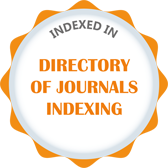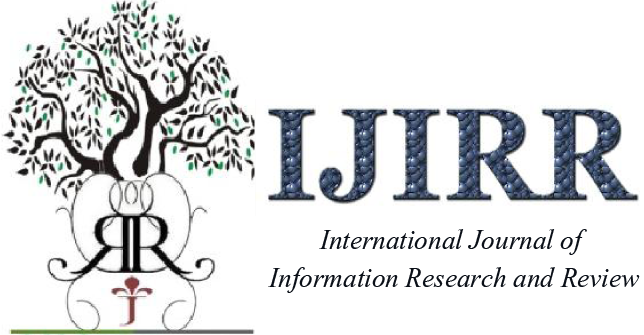Opinion Article
Volume 1 Issue 5 - 2017
Nutrition in the Early Years after Weaning
University of Bristol, UK
*Corresponding Author: Helen Clark, Now examiner and assessor for the OCR examination Board, Associate Director, Royal Public Affairs, University of Bristol, UK.
Received: September 04, 2017; Published: September 13, 2017
A child’s diet in the early years should form the foundation of lifelong healthy eating patterns. What constitutes ‘healthy’ eating for toddlers and babies and what do widely publicised messages such as ‘five a day’ mean for them and those assuming responsibility for their care?
Four definitive themes have been pinpointed by The Infant and Toddler Forum (‘Toddler feeding time’ https://www.infantandtoddlerforum.org/toddlers-to-preschool/little-peopes-plates/feeding-time/):
- Lack of knowledge about nutritional requirements for a toddler diet
- Poor feeding choices made by parents of infants under three years of age
- Irregular feeding patterns
- A lack of consistent information about under threes feeding
Findings from the above illustrate that about three times as many mothers access infant nutritional advice via a combination of media, book and internet sources rather than healthcare professionals or public healthcare education messages. Mealtimes are times to dread; akin to trench warfare for over a third of mothers, leaving 31% of their number ‘angry, tense frustrated or upset.’ In face of this, it is understandable that 29% of under threes are served the supposedly easy option of a take away meal at least once a week; that only 35% of young children eat food that is ‘cooked from scratch’ and that 23% of toddlers eat with their family just once a month or never.
Rather than foster a culture of parent blame, the optimum course should be rather to accept that many parents do not understand the principles of good nutrition and to ensure that they therefore have access to the information that they need. Healthy, thriving infants and toddlers require diets that are balanced and varied because early years’ nutrition impacts lifelong eating habits and subsequently long term health. Early years’ nutrition must not be left to a happenstance lottery of chance and the first, crucial, step is for policy makers at all levels to acknowledge that early years’ nutrition is a public health matter with all the accruing importance - and that the role that parents and families play in feeding young chidlren is in need of urgent reconsideration and reformulation.
The 2014 State of the Nation Report cites parenting as a more potent influence on a child’s life outcomes in the early years than economic circumstances, class or education and parents, guardians and carers are central in supplying foods and exposing children to their own behaviours around nutrition. By the time children start school, their food preferences have been largely determined:
(European Food information Council, 2012, ‘Parental influence on children’s food preferences and energy intake: http://www.eufic.org/article/en/articl/Parental-influence-children-food-preferences-and-energy-intake).
In England however, over a fifth of children begin primary school already presenting as overweight or obese.
Guidance on weaning and diet for toddlers can be perplexing for parents. Successive governments have advocated exclusive breastfeeding for the first six months and the Department of Health’s official guideline states that babies should not be introduced to solids before they are about six months old. Start4Life (2011) the Healthy Child Programme (2009) and Healthy Start (2014) concur. However, the advice presented is clearly failing to resonate with the desired audience because the National Infant Feeding Survey (2010) suggests that 30% of parents introduced solid food before four months with 75% doing so before the baby was five months old.
A survey conducted for Demos by the Bounty World of Mum (‘For Starters,’ 2012) found that 54% of those surveyed considered the information they had received about weaning to be confusing because instructions on many commercially sold food products appeared to contradict advice and recommendations from healthcare professionals. Labels stating ‘from four months plus,’ appeared to fly in the face of ‘around six months.’ Parents who responded to the Demos Bounty survey volunteered that they would welcome more support and advice from healthcare professionals at this stage but what is now needed as of urgency, is for the Government to promote a corporate model of responsibility for what children eat and therefore how they grow and develop. Playgroup, preschool and nursery staff; extended family members and childminders all share with parents in the care and feeding of toddlers. It is essential therefore, that everyone realises that wherever young children are fed, and those involved can have a positive effect upon their diet and lifestyle. To embrace this responsibility, all agencies must of necessity have clear, practical guidance about what foods to offer and what behaviours to instil. There is also a need for local co-ordination and collation of reputable sources of help so that parents are enabled to choose in accordance with their personal and family circumstances.
Basic tenets of nutrition for toddlers and young children include the following:
- After weaning, toddlers should continue to drink milk or consume other dairy products two or three times a day (Allen RE& Myers AL, 2006 ‘Nutrition in Toddlers,’ Am Fam Physician 74(9):1527-320
- Optimal nutritional intake (alongside the promotion of healthy diet and activity patterns) is key to building resilience and protecting against the later onset of chronic diseases
- Iron deficientrcy in the early years may prefigure an array of later health problems including impaired psychomotor and/or mental development and social/emotional development
- A Vitamin D deficiency can render a child prey to the risk of rickets, hypocalcaemia convulsions and motor delay. There are additional negative implications regarding calcium absorption and therefore, adult bone health. As many as 40% of young children have levels of Vitamin D below the optimal threshold, despite the implementation of a targeted supplement strategy (e.g. Healthy Start Vitamins)
- Zinc is frequently lacking in an early years’ diet and inadequate levels of omega-3 fatty acids such as DHA (docosahexaenoic acid, commonly present in oily fish) can impact adversely on visual and brain development (Kuratko CN., et al. 2013 ‘The relationship of docosahexaenoic acid with learning and behaviour in healthy chidlren: a review,’ Nutrients 5(7): 2777-810)
- Dental decay is preventative and cost effective and parents require advice about this before (and not after alone) their baby is weaned.
There is not a complete dearth of nutritional advice for the parents and cares of young chidlren. What is at question is its accessibility Information is supplied via the NHS ‘Birth to Five’ booklet (http://www.resourcesorg.co.uk/assetspdfs/BirthToFive09.pdf) traditionally distributed by midwives and health visitors – but now it appears that some Local Authorities are only supplying it online. Similarly, help in weaning, building a healthy and nourishing diet and nutritional cooking on a budget is also available at Children’s Centres, but the long term future of these remains uncertain. Weekly health visitor clinics and online networks such as www.mumsnet.com can also be valuable sources of advice but there is never an adequate substitute for personal and practical advice given in the home by a health visitor in the course of a sequence of regular visits.
Above all, when devising recommendation for infant feeding, policy makers must understand that any and all strategies will fail unless the confidence of parents/carers in their ability to cater for their young child’s nutritional needs is of central importance. If this is the case, positive nutritional patterns will be adopted with enthusiasm and commitment by the family as a whole; contributing in the best way to the fit and healthy adult society we would all like to envisage for successive generations.
Recommendations
- The Child Obesity Strategy (2016) to be enlarged to include specific interventions designed to support parents in improving/changing eating behaviours and diets for their family unit
- Health and Wellbeing Boards to be given a statutory duty to commission local services to provide timely and consistent advice for parents in the introduction of solid foods and toddler feeding
- Composition of statutory specific guidelines for food and drink in the early years to be subject to annual review
- NICE to examine the cost-effectiveness of universal approaches to address micronutrient deficiencies in children ( e.g. Vitamin D supplementation)
- Government to embed early childhood nutrition indicators into the key developmental checks and frameworks that are used to measure child poverty and health inequalities
- Revision of The Healthy Child Programme so that advice on weaning and dental health is included before the ‘6 months – 1 year’ section and all staff working in the early years sector to receive appropriate training in oral health
- Revision of The Healthy Child Programme to include strategies to ensure that health visitors are equipped with the knowledge and skill to advise parents on early life and nutrition; identifying this as a key competency for professional development
- The Health Visitor Implementation Plan (2011-15) to be subject to impact evaluation upon conclusion and forthcoming plans to include initiatives to promote the importance of ongoing professional development and updating the skills/knowledge base of the existing health visiting workforce
- Department of Health/Public Health England to refresh Start4Life and Change4Life strategies, developing clear messages on healthy eating and lifestyle for the toddler age group
Citation:
Helen Clark MA. “Nutrition in the Early Years after Weaning”. Nutrition and Food Toxicology
1.5 (2017): 195-197.
Copyright: © 2017 Helen Clark MA. This is an open-access article distributed under the terms of the Creative Commons Attribution License, which permits unrestricted use, distribution, and reproduction in any medium, provided the original author and source are credited.



































 Scientia Ricerca is licensed and content of this site is available under a Creative Commons Attribution 4.0 International License.
Scientia Ricerca is licensed and content of this site is available under a Creative Commons Attribution 4.0 International License.